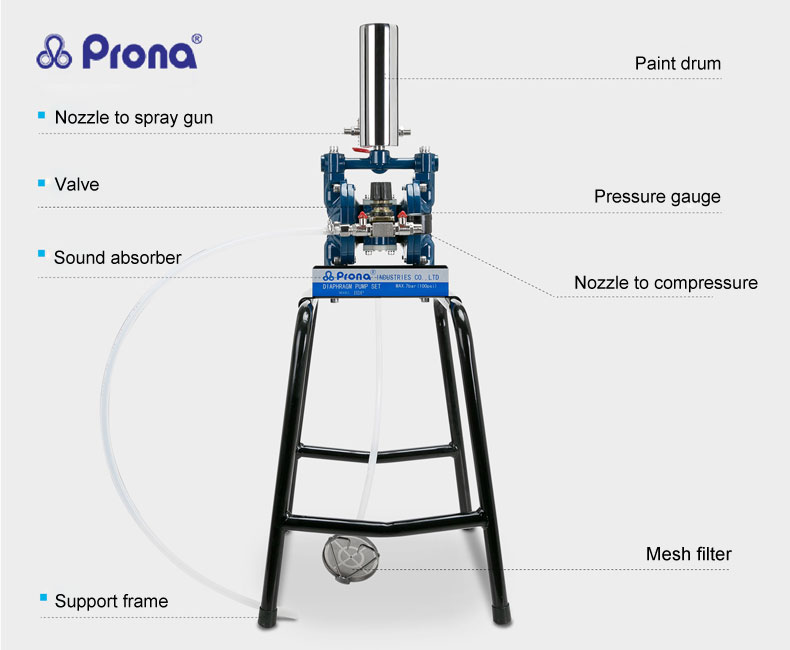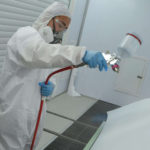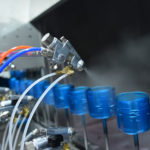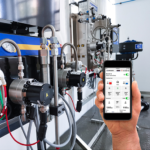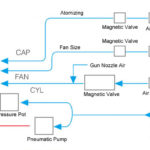The Air-Operated Diaphragm Pump (AODP) is the most popular and cost-effective paint pump for coating applications. The flexibility of this configuration often creates some confusion when selecting a pneumatic diaphragm. In each application, different pump materials are suitable for a variety of factors such as pH, abrasive, temperature and fluid density. It is important to check the manufacturer’s specifications and chemical compatibility guidelines before purchasing or operating.
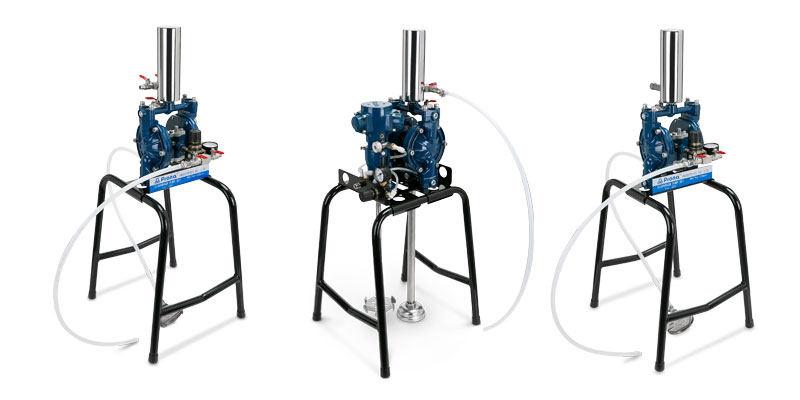 I – control corrosion
I – control corrosion
When configuring a pneumatic diaphragm pump, it is a challenge to specify the pH of the safe handling chemicals and fluctuations in different concentrations, requiring proper selection of the pump components and pump body to ensure compatibility, avoid pump corrosion and reduce maintenance time. In applications where pH changes or when chemical concentrations may vary, plastic pump bodies such as polypropylene, polyvinylidene fluoride (PVDF) and polytetrafluoroethylene (PTFE) are the most commonly used materials. In particular, polytetrafluoroethylene, which provides the highest chemical compatibility, can usually be safely used with the most acidic acids such as hydrochloric acid and sodium hydroxide.
Recommendation: Check the manufacturer’s chemical compatibility guidelines.
II – reduce wear
As noted above, the popularity of polytetrafluoroethylene is due to its chemical inertness and compatibility for high levels of high temperature applications, but it is often misused in abrasive applications such as chemical pulp. In general, metal pump bodies such as stainless steel, aluminum, and alloys are the best abrasives. In the application of abrasives, synthetic rubber and thermoplastic rubber pump internal parts will provide long life and resistant to abrasives.
Recommendation: Material with thermoplastic rubber or flexible stainless steel pump.
III – verify the temperature
In order to speed up production and reduce production costs, more and more plants are operating at extreme temperatures. The increase in temperature increases the complexity of material selection. Plastic pump bodies are not recommended for demanding temperature applications because cold flow and creep can cause leaks. When the temperature exceeds 180 degrees Fahrenheit, the choice of compatible internal components is drastically reduced. At such high temperatures, such as fluororubber (fluororubber or fluororubber material®), ethylene propylene rubber (EPDM), polytetrafluoroethylene, and polyvinylidene fluoride are preferred. Ethylene-propylene rubber and fluororubber have the highest thermal resistance and are rated at 275°F and 320°F. Polytetrafluoroethylene and polyvinylidene fluoride are the best alternatives, 212°F and 225°F, respectively.
Recommended: aluminum, fluoro rubber, stainless steel pump EPDM rubber, PTFE or polyvinylidene fluoride material for high temperature applications. Aluminum or alloy stainless steel pumps, fluoro rubber or thermoplastic materials for low temperature applications.
IV – check the density of the paint
When configuring a diaphragm pump, the weight of the liquid is often referred to as the fluid density. Diaphragm pumps use a ball check to rise and fall as pressure changes occur in the fluid chamber of the pump. The pump must be configured according to the concentration and pressure specified for the coating.
What to use
In coating industry, the most popular model of pneumatic paint pump are Graco production such as Husky 308 and 716. But the original model only provides a basic pump, users need to configure more such as valves and pressure gauge etc in order to make it functional properly. Hence we suggest a new model which provides a full set in ready-to-use condition. Prona R-20 is constructed complete the same way of Graco, same dimensions and same technical properties but with full functional set. Prona R-20 technical data as following
|
Type
|
Model
|
Air intake
|
Fluid intake
|
Temperature
|
Air pressure | Maximum fluid pressure | Fluid outputer cycle |
Maximum cycle
|
Maximum Fluild output
|
Maximum Flow
|
Air compressor capacity |
Weight
|
Carton box size |
|
℃
|
Mpa(kg/cm㎡)
|
Mpa(kg/c㎡)
|
ml/cycle
|
l/min
|
l/min
|
l/min
|
kw
|
kg
|
L*W*H (mm) |
||||
|
R-20
|
Presure storage Attached
|
G1/4
|
G1/4
|
5-40
|
0.15-0.6 (1.5-6.0) |
0.60(6.0)
|
80
|
150
|
12
|
20
|
0.4-0.75
|
7.3
|
385*355*485
|
